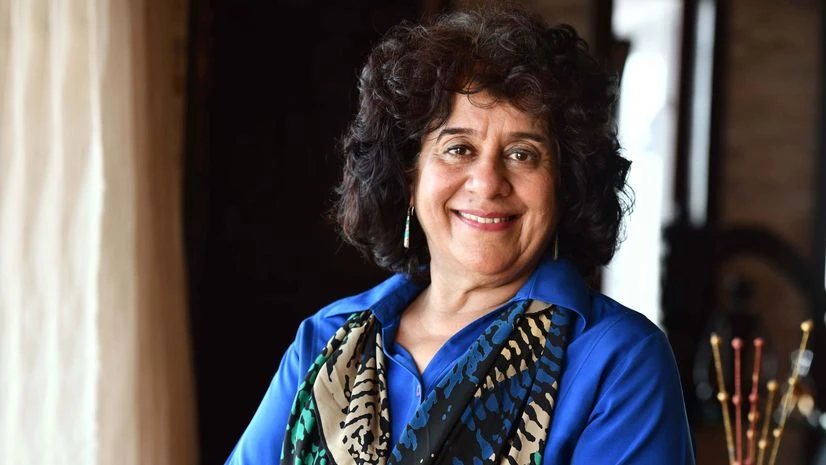BS BFSI Summit 2024: Large-cap stocks are unlikely to see a sustained correction, said Devina Mehra, founder, chairperson and managing director at First Global at the Business Standard BFSI Insight Summit on Friday. She, however, cautioned against the froth and overvaluation of select mid-and small-cap stocks.
Though a lot of fund managers have suddenly found chinks in the Indian macro-economy, they (chinks), Mehra said, have been there for a while now. As a strategy, she remains underweight on capital goods and banks and financial services (BFSI).
“Indian equities have given 15 – 16 per cent return since the Sensex came into existence around 40 years ago. While equities are inherently volatile, we tend to forget this in practice. If any investor had put in Rs 100 in equities back in 2011, they would have got Rs 230 in return in the next 10 years. In 1980, if anyone would have put Rs 100, they would have got Rs 700 in the next 10 years. This below-par performance is what created the bull-run seen since 2020-Covid lows,” she said.
Mehra, who prefers to take a calculated and a cautious approach to stock market investing, has been warning against a market correction since the past few quarters.
Market corrections on the last few occasions, she said, have been in double digits. However, the fall from the peak levels in a lot of indexes has not been in double digits yet.
Also Read
“If you go back in history, 1994 – 2003 is the only period in Sensex’s history when the Sensex’s returns were zero. Between 2003 and 2007, the markets went up 6x as a part of the overall bull-run in global equities. In equity markets, one has to be patient. If things are a little uncertain, it does not make sense to get out,” Mehra said.
While there are risks to being invested in the equity markets at a time when they are falling (people end up losing money), there are risks to not being invested and missing out on the opportunity, she cautions. Investors, she says, need to have risk control mechanisms in place to limit losses / downside, if any.
"If one misses out on an investment opportunity for just 10 days in a span of 40 years, it takes away two-thirds of the returns. If you miss out on 30 best days for investing, which is less than a day per year in a span of 40 years, you miss out on 90 per cent of the overall possible returns. Most sharp up move days in the markets come when there is uncertainty and not in the middle of a bull-run," Mehra said.
Mehra also cautioned against the areas of froth in the markets – whether it is the initial public offer (IPO) frenzy, or the mid, small, and microcaps. Of all the companies that have listed in India, she said, stock prices of over half have gone to zero.
"While investors need to be prepared for making some losses, they should not lose big money chasing euphoria amid fear of missing out (FOMO). While price-to-earnings (PE) is a crude measure to gauge market froth, the overall market PE is not too extreme. India has been an expensive market, but we are still not in the dangerous category," Mehra said.
Cautioning against the mid, small and microcaps, Mehra said it is difficult for such stocks to make a full comeback/recovery in case they get beaten down.
"In 2008 -09, the smallcap index fell 78 per cent. It took 8 years to come back to that level again. However, since the index composition changes around 18 – 20 per cent every year; so in 8 years, while the index recovered, a lot of stocks that comprised the index back in 2008-09, could not come back to the pre-crash levels," she said.
Market regulation, IPO frenzy and role of AI
If a business is good and is priced sensibly, Mehra believes it will continue to attract investors. However, in an IPO frenzy, investors take IPOs to be a lottery and want to flip out in a week.
Subscription levels in an IPO are not necessarily a good indicator of how good or bad a company is. There have been cases when an IPO was under-subscribed, but the company went on to deliver good returns over a period of time.
Market regulator Securities and Exchange Board of India (Sebi), she said, is doing a good job and steps taken by it are in the right direction.
Talking on the role of artificial intelligence in equity market investing and portfolio management services (PMS’s), Mehra said the landscape is evolving and changing for the good. However, investors need to interpret the data carefully as it remains subjective to what answers one seeks from AI.
"The equity market playground has changed now. Earlier, information was the cutting edge. Information is available freely to all. The edge now is who can analyze the masses of data well. Human judgement brings noise and bias. One needs to really go into the depths of what is happening and then take an investment call," she said.
US & China factors
For the Indian markets, foreign flows, according to her, have not mattered much. One needs to figure out the correlation between foreign flows and how the markets have behaved. Data, she said, suggests that there is not much correlation between the two.
"What happens to the Chinese economy is important from a commodity standpoint. That's the most relevant part for the markets. China is a very good example of disconnect between the economy and the markets. Since 2007, the Chinese economy has moved up over 7x, and the markets have not gained that much during this period. China has the largest weight in the emerging market indices, and if their stock market goes up, the other EMs also start to look attractive," Mehra said.

)